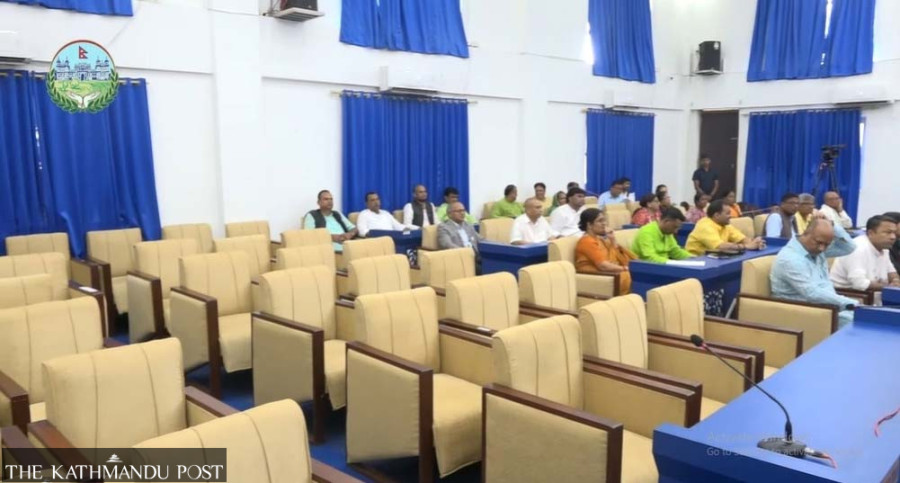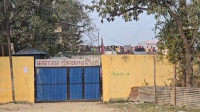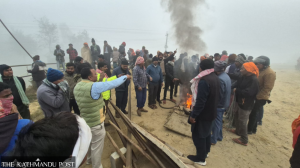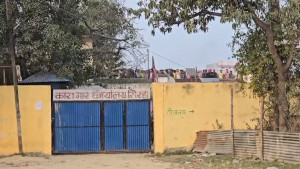Madhesh Province
Madhesh assembly passes annual budget amid opposition boycott
Even ruling party lawmakers express discontent over the budget allocation process.
Kamalesh Thakur
The Madhesh Provincial Assembly on Monday passed its budget for the upcoming fiscal year amid the boycott of opposition lawmakers, drawing criticism for fast-tracking the appropriation bill without comprehensive legislative scrutiny.
The Rs46.98 billion budget, which was originally tabled on June 15 by Finance Minister Sunil Kumar Yadav, was endorsed unanimously despite the boycott of six opposition parties.
Opponents accused the government of bypassing parliamentary procedures and manipulating budget documents under the influence of middlemen.
Lawmakers from Janata Samajbadi Party-Nepal, CPN (Unified Socialist), CPN (Maoist Centre), Nepal Sanghiya Samajbadi Party, Rastriya Prajatantra Party, and Nagarik Unmukti Party abstained from the meeting in protest.
The provincial government pushed the appropriation bill-2025 through fast-track procedures, bypassing detailed discussion. Several sections of the bill were reportedly dropped due to time constraints.
The bill is scheduled to come into effect on July 17, marking the start of the new fiscal year.
Earlier in the day, opposition parties walked out following the collapse of a task force formed to investigate alleged discrepancies in the budget.
The committee was dissolved on Monday morning after disagreements surfaced over nearly Rs3 billion in off-book projects—approximately 8,000 plans—that critics claim were added without legislative approval.
Additional controversy emerged over the difference between the printed “red book” distributed to lawmakers and the version used in the government’s information system.
While a 461-page document was shared in the assembly, the digital system contained a 755-page version, fuelling concerns over hidden allocations.
Discontent was not limited to opposition ranks. Several lawmakers from ruling parties also voiced frustration over what they described as biased and opaque distribution of funds.
CPN-UML legislator Lakhan Das stated that most lawmakers—except ministers—were dissatisfied with the budget. He accused the education minister of disproportionately allocating resources to her own constituency, Mahottari-3(2), where 117 projects worth Rs410 million were reportedly concentrated. Many of these projects, he claimed, were designed to benefit NGOs.
Upendra Mahato of the ruling Loktantrik Samajbadi Party warned he would boycott the budget unless the complete 755-page red book was officially made available.
“How can we answer the people’s concerns when we are handed one version, but another exists in the system?” he said during the session.
Nepali Congress lawmaker Birendra Singh called the process a clear example of misgovernance.




 22.11°C Kathmandu
22.11°C Kathmandu















